From the 28th June – 2nd July 2021, the International Institute for Cultural Enquiry hosted a Decolonial Methodologies Summer School- in partnership with Exeter Decolonising Network– for PhD students based at the University of Exeter, each at various stages of their research. Through a rich programme of sessions facilitated by University colleagues and external partners, our aim was to introduce doctoral researchers to the possibilities found in decolonial studies. In approaching decolonising research from a methodological standpoint, the programme took the positionality of the researcher as its site of departure; tracing and challenging the means by which knowledge is collected, interpreted, performed, informed, assembled and (re)presented in their work.
As outlined by Linda Tuhwai Smith in the introduction to the 2021 edition of Decolonizing Methodologies: Research and Indigenous Peoples, “Meaningful decolonizing practices are not all about theory or all about action but they are all about praxis and the reflexivity that is necessary for the integrity of research and of the researcher themselves” (pp. xiv). The intention of the Summer School was to build a space for such reflexivity… for collectively getting uncomfortable, for dismantling hegemonic ways of being, for fleshing out emergent questions and for critically engaging as a diverse community of researchers from a vast range of disciplines.
The programme was designed to enable participants to develop as the week progressed, beginning with an introductory session co-led by Dr Katie Natanel and Professor Rob Gleave, which explored what ‘doing the work’ might mean in a PhD research context. Dr Natanel, in a presentation on Departures, positioned decolonial methodologies as open, evolving multiplicities: as interruptions to hegemony and established ways of doing and framing research as actions contributing to the construction of decolonial futures and material transformation; as diagnosing power and how it is constructed and (re/)produced through the colonial present. This session highlighted the radically transformative potentialities of a decolonised research praxis as orientated toward new ways of knowing, asserting that whilst ‘the work of decolonising and the scope of methodologies are contested terrain’ (Katie Natanel), ‘Decolonisation is not a metaphor’ (Tuck & Yang 2012).
‘Decolonisation is not a metaphor’ (Tuck & Yang 2012).
The sessions which followed across the first half of the week built upon the praxis and reflexivity necessary to embark on decolonial work. Who are you? Exploring the self through LEGO Serious Play, led by Dr Caitlin Kight, looked at self-awareness as a key part of social justice work. Participants experimented with the methodology of play, using Lego bricks as a medium through which to explore how their understanding of themselves influences the decisions they make in research. Dr Lara Choksey’s session on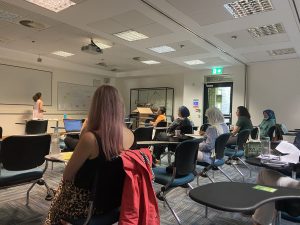 Speculative Methodologies explored speculation and wonderment as generative sites for decolonial praxis, considering processes of constructing methodologies in Black and decolonial studies and asking ‘How do we construct the subjects, contexts and questions of our research?.’ Drawing upon writings by Saidiya Hartman and AbdouMaliq Simone, the session created the space for considering “the minor” and “the uninhabitable” as spaces for speculation.
Speculative Methodologies explored speculation and wonderment as generative sites for decolonial praxis, considering processes of constructing methodologies in Black and decolonial studies and asking ‘How do we construct the subjects, contexts and questions of our research?.’ Drawing upon writings by Saidiya Hartman and AbdouMaliq Simone, the session created the space for considering “the minor” and “the uninhabitable” as spaces for speculation.
On Tuesday morning, Riadh Ghemmour led a session entitled Sharing Circle: Reflecting on Positionality, Power and Representation in Decolonial Work, which opened conversation on the links and tensions existent between a decolonial work and reflection. Riadh highlighted research as a site of struggle where power dynamics are established. Through exploring the Sharing Circle- an indigenous methodology based on respect, reciprocity, listening and knowledge co-creation- this session invited participants to question:
“What is the position which we are speaking, writing and researching from? Whose research/work is it? For whose benefit? And how are we framing the narrative(s)?”.
Similarly challenging hegemonic modes of knowledge production, Dr Aimée Lê’s Silence and Practice in Research Writing, starting with an initial case study of an alternative historical narrative as presented by Trouillot, addressed the question of silence within research material, meaning and the research process. Tuesday afternoon concluded by venturing beyond the academy walls, as participants visited Exeter’s RAMM museum to explore what decolonisation might mean in relation to their collections, considering the emergence and applicability of different methodologies to the museum and public setting, followed by dinner at the Exeter Phoenix, Exeter city centre’s multi-arts venue.
In Values in action: applying your personal values in a research context, Kelly Preece and Dr Caitlin Kight provided a space for participants to identify and reflect on their values as a researcher, examining how they want to enact these values to collaboratively envisage and develop a resilient research community. Malcolm Richards and Sandhya Dave (DDE) in Don’t let the cook-up catch! Re/defining our funds of knowledge through processes of de/colonizing relationships with community-focused research, considered how we can commit to ongoing processes which re/define our own identities, positionalities, and engagement in relation with the communities much of our work relies upon. The session ultimately asked:
‘As we explore histories, knowledge, repertoires, and movements expressed in scholarship which disrupt and resist our colonising ways, are we simultaneously cognizant of our responsibilities to the dialogues & valuing of the ‘funds of knowledge’ we are privileged to access?’.
Following lunch, participants attended the IAIS Research Afternoon: Pierre Hadot and the Decolonial Study of Islam.
Professor William Gallois began Thursday morning’s activity with Decolonial Methods and Indigenous Teachers- a session which looked at the centrality
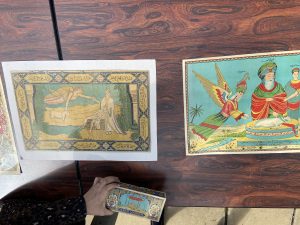
of methodological questions to the ‘decolonial turn’, exploring the work of the Algerian artist Mohammed Racim – as a means to enumerate the challenges and joys of trying to produce decolonial work. We moved this session outside, and participants were able to examine and interact with works of art physically, questioning how sources perform differently dependent on the observer.
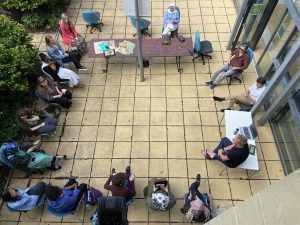
Decolonial feminism(s), a workshop facilitated by Dr Katie Natanel, invited us to centre gender and sexuality in decolonial research, theory and praxis; exploring how a ‘feminist lens’ (which begins from a place of multiplicity and intersectionality) enriches our methodologies. The session traced emergent
theoretical and methodological streams, including decolonial feminist ecologies, decolonial queering, unsettling setter coloniality and decolonising solidarities. On Thursday afternoon, participants attended National Syndromes: A Symposium, which ‘explored the intersections of health and biomedicine, racism and racialisation, and renewed imperial and colonial legacies in the conjoined context of COVID-19, Brexit and related international disasters.’ Through observing the range of different interventions in this critical space, participants gained insights into the forging of interdisciplinary decolonial research agendas. At the end of the symposium, all participants
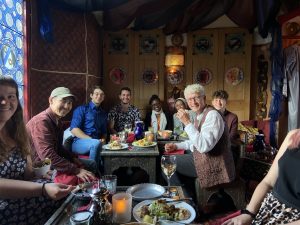 were invited to dinner at Al Farid next to Exeter Cathedral, where we enjoyed communing around delicious food and learning about each other.
were invited to dinner at Al Farid next to Exeter Cathedral, where we enjoyed communing around delicious food and learning about each other.
The week concluded with a return to the reflexive. Sally Flint convened a writing workshop on Poems, the Power of Words and Changing Places, inviting participants to reflect on an object or place through poetry. Participants were encouraged to consider the significance of the medium of words in their own work, and one participant shared their poem, which was performed in her mother tongue (Portuguese).
To return briefly to Tuhiwai Smith, ‘The challenge is always to demystify, to decolonize’ (17). The Summer School equipped participants with a series of methodological provocations, interventions and speculations, which we hope will act as a point of departure as they take on this challenge and explore what decolonial methodologies look like in their specific research contexts. We hope it is a point of activation, inspiration, and empowerment for all involved as they forge their own decolonial research pathways and explore decolonial methodologies in practice.
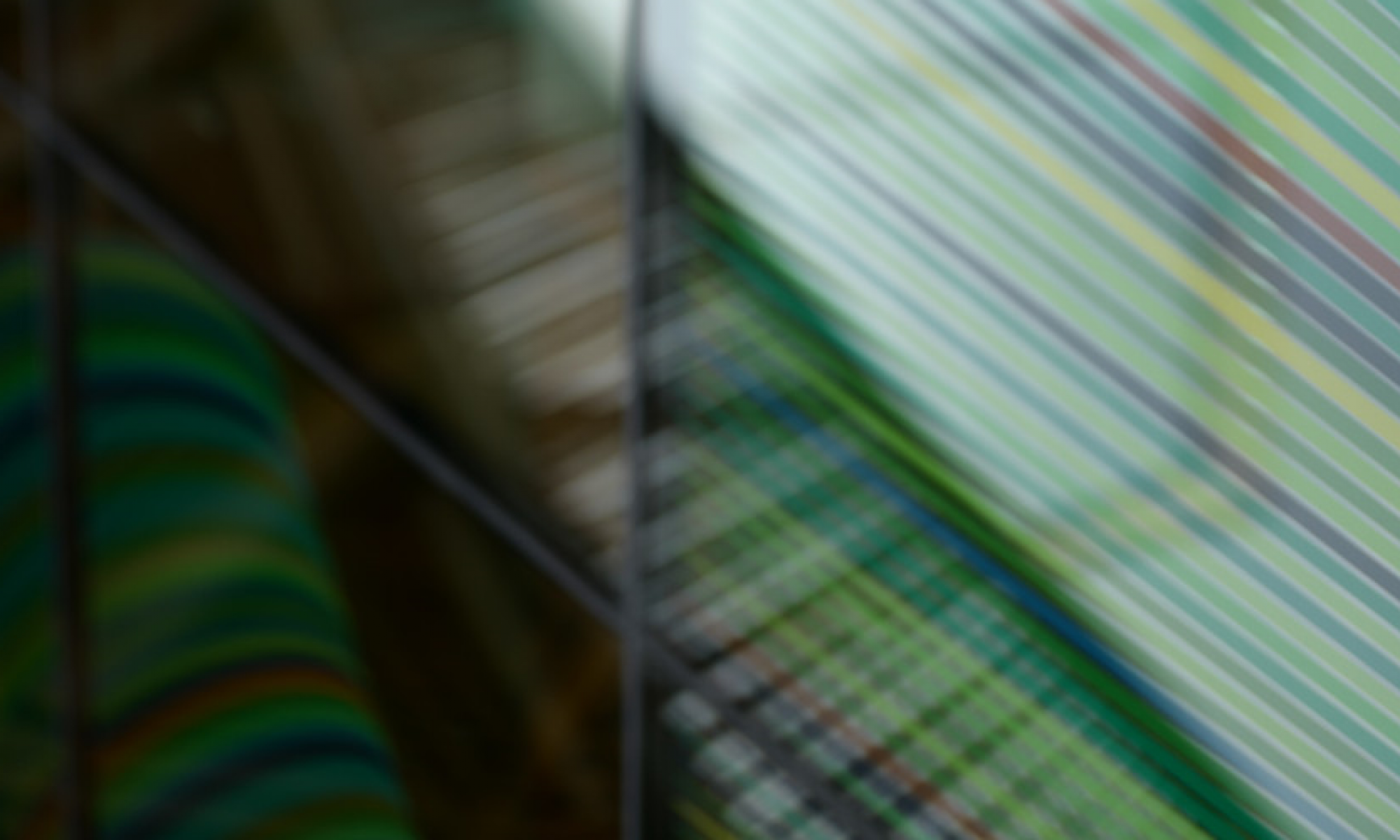
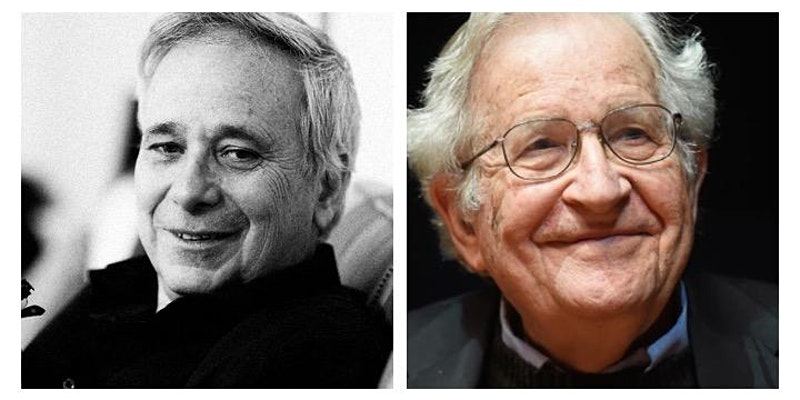
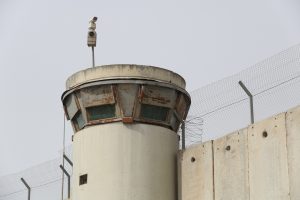 implications of the evermore rightward shift in Israeli politics and the struggles of the occupied territories, to tracing the stark inequalities exposed and exacerbated by the Covid-19 pandemic across the global stage and mapping resistance through decades of racial capitalism. Despite the particular violence of our present global political economy governed by an extractivist, discriminatory, colonialist logic- a violence inherent in the monopolisation of vaccines by richer countries we are presently witnessing- Chomsky and Pappé, crucially, retain a level of defiant optimism in our ability to move forwards in the face of intractability. In a question posed to Professor Chomsky, Professor Pappé asked, optimistically, whether the Covid-19 pandemic has created exceptional circumstances uniquely able to inadvertently open up ‘new vistas and opportunities for creating a counter-alliance of internationalism and solidarity’. The pair proceeded to contemplate upon whether the kinds of resistance we are seeing now, enabled by digital connectivity, might eventually have the same impact as more traditional action ‘on the ground’ has had through previous lived iterations of political impasse. The focus of the conversation turned incisively to the Black Lives Matter movement, particularly noting its cultural salience, the powerful radicality of its intersectionality, and its success as the most popularly supported civil rights movement in our history.
implications of the evermore rightward shift in Israeli politics and the struggles of the occupied territories, to tracing the stark inequalities exposed and exacerbated by the Covid-19 pandemic across the global stage and mapping resistance through decades of racial capitalism. Despite the particular violence of our present global political economy governed by an extractivist, discriminatory, colonialist logic- a violence inherent in the monopolisation of vaccines by richer countries we are presently witnessing- Chomsky and Pappé, crucially, retain a level of defiant optimism in our ability to move forwards in the face of intractability. In a question posed to Professor Chomsky, Professor Pappé asked, optimistically, whether the Covid-19 pandemic has created exceptional circumstances uniquely able to inadvertently open up ‘new vistas and opportunities for creating a counter-alliance of internationalism and solidarity’. The pair proceeded to contemplate upon whether the kinds of resistance we are seeing now, enabled by digital connectivity, might eventually have the same impact as more traditional action ‘on the ground’ has had through previous lived iterations of political impasse. The focus of the conversation turned incisively to the Black Lives Matter movement, particularly noting its cultural salience, the powerful radicality of its intersectionality, and its success as the most popularly supported civil rights movement in our history.